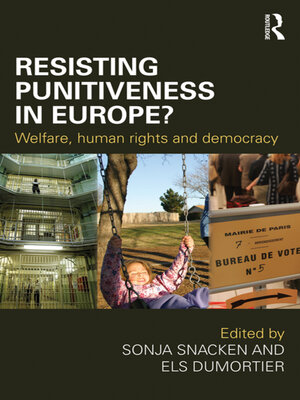
Sign up to save your library
With an OverDrive account, you can save your favorite libraries for at-a-glance information about availability. Find out more about OverDrive accounts.
Find this title in Libby, the library reading app by OverDrive.



Search for a digital library with this title
Title found at these libraries:
| Library Name | Distance |
|---|---|
| Loading... |
This volume provides an important and exciting contribution to the knowledge on punishment across Europe.
Over the past decade, punitiveness has been studied through analyses of 'increased' or 'new' forms of punishment in western countries. Comparative studies on the other hand have illustrated important differences in levels of punitiveness between these countries and have tried to explain these differences by looking at risk and protective factors. Covering both quantitative and qualitative dimensions, this book focuses on mechanisms interacting with levels of punitiveness that seem to allow room for less punitive (political) choices, especially within a European context: social policies, human rights and a balanced approach to victim rights and public opinion in constitutional democracies.
The book is split into three sections:
This book will be a valuable addition to the literature in this field and will be of interest to students, scholars and policy officials across Europe and elsewhere.







